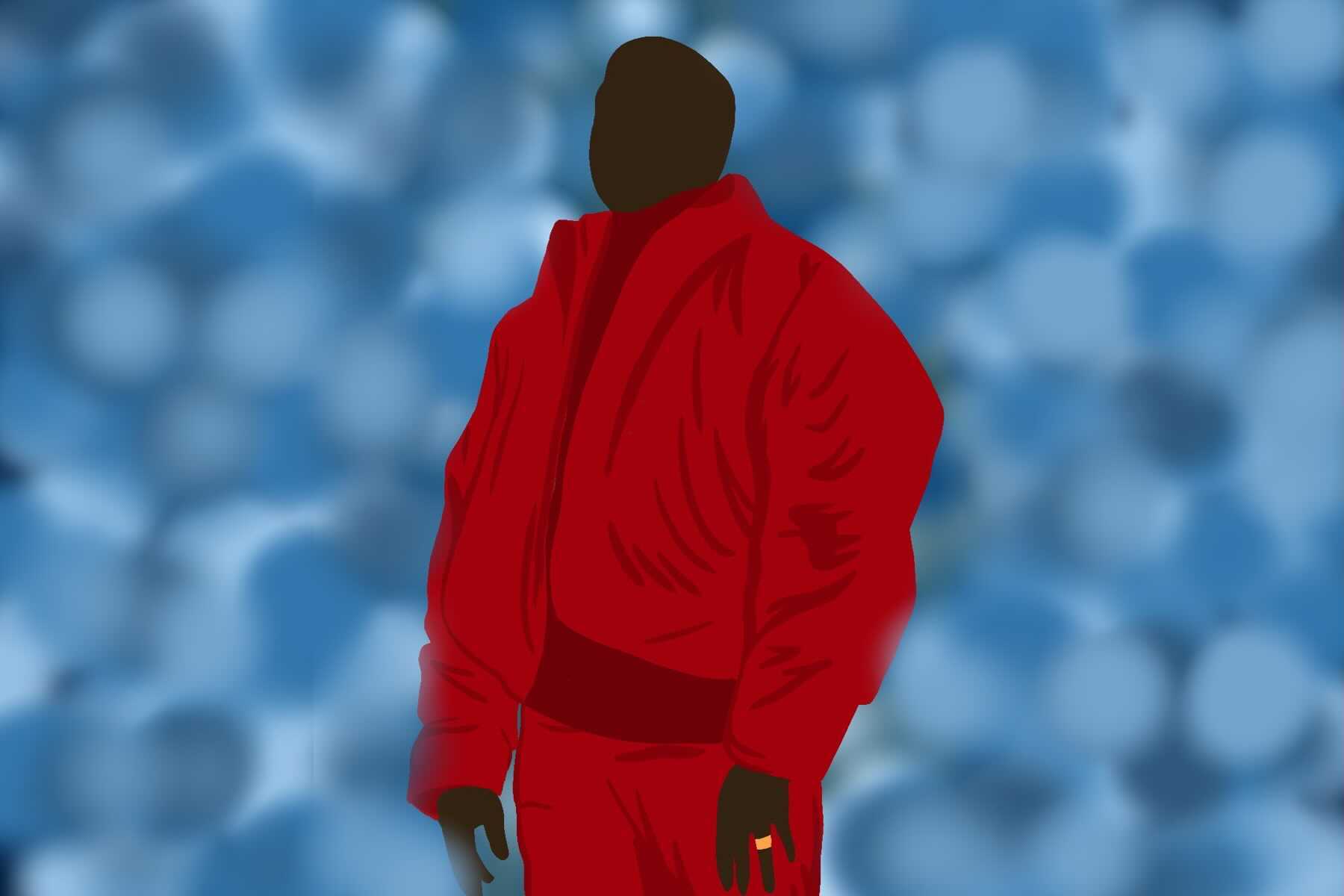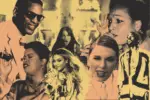Few artists have accrued such an extensive level of notoriety and respect that the countdown to their album release paralyzes both the music industry and audiences alike. Kanye West is one of these select few musicians, an enigmatic creative who has remained hip-hop’s most enthralling musical mind for the better part of two decades. His upcoming album “Donda,” named after his mother, is only his 10th in that extensive span.
West’s infrequent output should not be mistaken for laziness; rather, it is a testament to the precise craftsmanship that he has employed to create some of the genre’s most celebrated music. West has been consistently praised for his groundbreaking instrumental production and sonic concepts, though he has remained as divisive as revered throughout the years. Much of the criticism pertains to his lyricism and personal life, two strands of his public image that are irremovable from his artistic identity.
There are not many artists in contemporary hip-hop whose discography can be neatly categorized by album eras, yet all of West’s controversies and musical decisions definitively fall into distinct timelines around a particular release. In keeping with this unofficial tradition, West’s forthcoming “Donda” hits a fever-pitch crescendo of musical eccentricity deserving of its own analysis as a markedly new chapter in its creator’s career.
The particulars of West’s newest release timeline are unique but not novel, for they merely add to his storied history of unusual decision making. West was never by any means a conventional artist, yet the first decade of his career following his 2004 debut album lacked the patently Kanye absurdity audiences have come to expect. A partial Jay-Z protégé and masterful producer, West crafted one classic album after another, always with a unique flair that seemed to push the creative envelope in a radically new direction.
The trajectory of his artistry took a drastic turn in 2013 with the release of his sixth album, “Yeezus,” the first of West’s records that truly puzzled a significant portion of his fanbase. “Yeezus” remains his most industrial album to date, with tracks such as “I’m In It” and “On Sight” sounding as if they had been unintentionally subjected to excessive instrumental processing. Longtime hip-hop producer Rick Rubin listened to the initial versions of several songs, stating that the album “sounded like several months” away from being in a finished state, though West had brought him in to help make his tracks even more rudimentary.
On successive albums, his unusual recording tendencies became even more pronounced, particularly his desire to make last-minute changes. Kim Kardashian, West’s former wife, spoke about the recording process of his 2018 album, “Ye,” stating that, “Two weeks ago, he just came in, woke up one morning, and redid the whole thing. Like, new beats, he did the whole thing all over again.”
West’s unorthodox recording practices have been fully empowered by the digital music marketplace. His first studio album, “The College Dropout,” was released at a time when record labels could not allow artists to modify tracks right up until the release date. The limitations of a physical product release did not, however, prevent Kanye from beginning his long legacy of delaying his releases; “The College Dropout” hit store shelves seven months after it was supposed to be released.
Streaming platforms have not only given West the luxury of releasing music at his own pace; they also let him make alterations to initially finalized versions of his tracks, a capability he has put to the test with “Donda.” The desire to take unnecessary steps to modify a nearly completed project might hint at perfectionism but, in truth, many of the most infamous examples of his editorial decision-making point more toward impulse than elite craftsmanship.
Perhaps most emblematic of his unorthodoxy, West took the picture that was to eventually become the cover of “Ye” while driving to the album’s listening party in Wyoming. He has typically been able to get away with erratic decisions such as this because of his reputation, yet not every aspect of his work has adequately rested on the praise he has received.
The thematic overtones of the unpolished “Donda” appear to continue one of West’s more recent artistic developments: cryptic Christian lyricism. In 2019, West released his most recent solo album, which boldly asserts his renewed spirituality with the title “Jesus is King.” Far from being the only artist to sing about his faith, it was not the presence of religious imagery that sparked backlash, but his characterization of his own relationship with Christianity that raised eyebrows.
“Donda” appears to offer further commentary on his faith through tracks such as “No Child Left Behind” and “I Know God Breathed on This.” The intersection of fame and spirituality is an interesting dynamic that has played into the lyrics on both projects, though the background of this sudden shift toward divinity is certainly unprecedented. West’s Christian lyricism is most intensely reviled in the context of several statements he has made in recent years, including one infamous incident in which he implied that slavery was voluntary.
It is hard to conceive of West as a mainline Christian given his extremely unpopular worldview, but his earnest references to faith in his work point to the fact that he has largely insulated himself from external commentary. In an increasingly secular culture, West’s fixation on Christ is one of the most noteworthy examples of the disconnect between his trajectory and the ever-evolving culture of popular music.
Though the subject matter of his albums is typically enough to stir controversy, West’s behavior is oftentimes the most divisive component of his releases. Eager to generate buzz for “Donda,” West held a listening event for the unfinished product at Atlanta’s flagship Mercedes-Benz Stadium. At the center of the dimly lit, smoky arena, West paced around the sprawling white floor draped in blood-red clothing, kneeling or standing in place during moments that seemingly resonated with him.
Of equal note to his behavior during the event was the track listing, which featured an unprecedented reliance on guest artists. If it had not been for the recognizably Kanye instrumentals the other artists sang and rapped over, it would be easy to mistake the album for a collaborative work that West did not orchestrate.
One of the most predictable criticisms of the premature “Donda” centered on the mixing of its instrumentals, which were largely crude and unrefined in true Kanye West fashion. While many hope that improving the sonic quality will be at the top of his agenda during the revision process, his previous work demonstrates that this may not be the case. Industrial hip-hop has grown in popularity in recent years, with acts such as Death Grips and JPEGMafia creating tracks defined by a gritty aesthetic.
West has largely been playing catch-up to this trend, though “Donda” sounds like an album that is blending rougher beats with a softer, lo-fi texture that refreshes an otherwise derivative formula. Most of West’s critically acclaimed albums have seen him revolutionize a particular sonic aesthetic or structure, so it is promising that he appears committed to doing so following the listening event.
The fans who were in attendance for the pseudo-performance have long departed Mercedes-Benz Stadium; West, as of Aug. 9, however, has not. In a bizarre move, he has elected to set up shop within one of the arena’s locker rooms, relegating himself to an uncomfortable single bed and the minimal amenities visible in a press photo of the space. The venue has become his musical incubator over the past two weeks, a space in which he and his inner circle are making unknown alterations to “Donda” after its initial presentation.
In the absence of the expectation that the instrumentals will become more polished, it is impossible to determine what exactly is occurring within this “studio.” It is entirely possible that the final version of “Donda” will sound nothing like the original, in a move that would mirror Kardashian’s story about “Ye.” It would be easy to write off his decision to hole up in an arena as an act of desperation, but he has previously proven that deadline pressure and a concentrated environment are part of his recipe for success.
Intense album revisions and peculiar content aside, the method to West’s madness is tolerated based on it being a necessary step to eventually deliver a great album. In true Kanye West fashion, however, even this basic principle may not continue to hold true for him. After pushing the release date to Aug. 6, West scheduled a second performance for a presumably remodeled version of “Donda,” raising concerns that he is entering an endless sequence of revisions that risk tanking the project.
Ultimately, his audience is his experimental canvas, onto which he can pour out sonic experiences in whatever form he chooses. The logic of holding a listening event for one of West’s albums begins to break down because he will go on to make changes that are independent of public feedback. The presence of West’s name in media headlines when he schedules impromptu events or manipulates his music beyond reason is simply an effort to fit a square peg into a round hole.
It is impossible to compare both his music and his creative mindset to any blueprint of a standard artist, for he is only able to put out his groundbreaking releases due to his unorthodoxy. “Donda” may very well join the portion of West’s body of work that is held in high regard, and in several years that reception will likely overshadow the bumps along its road to release. It is the first album in many years on which West has reclaimed his spot ahead of the curve, and this fact alone may be enough to quiet his skeptics and revive his image as hip-hop’s enduring virtuoso.

















